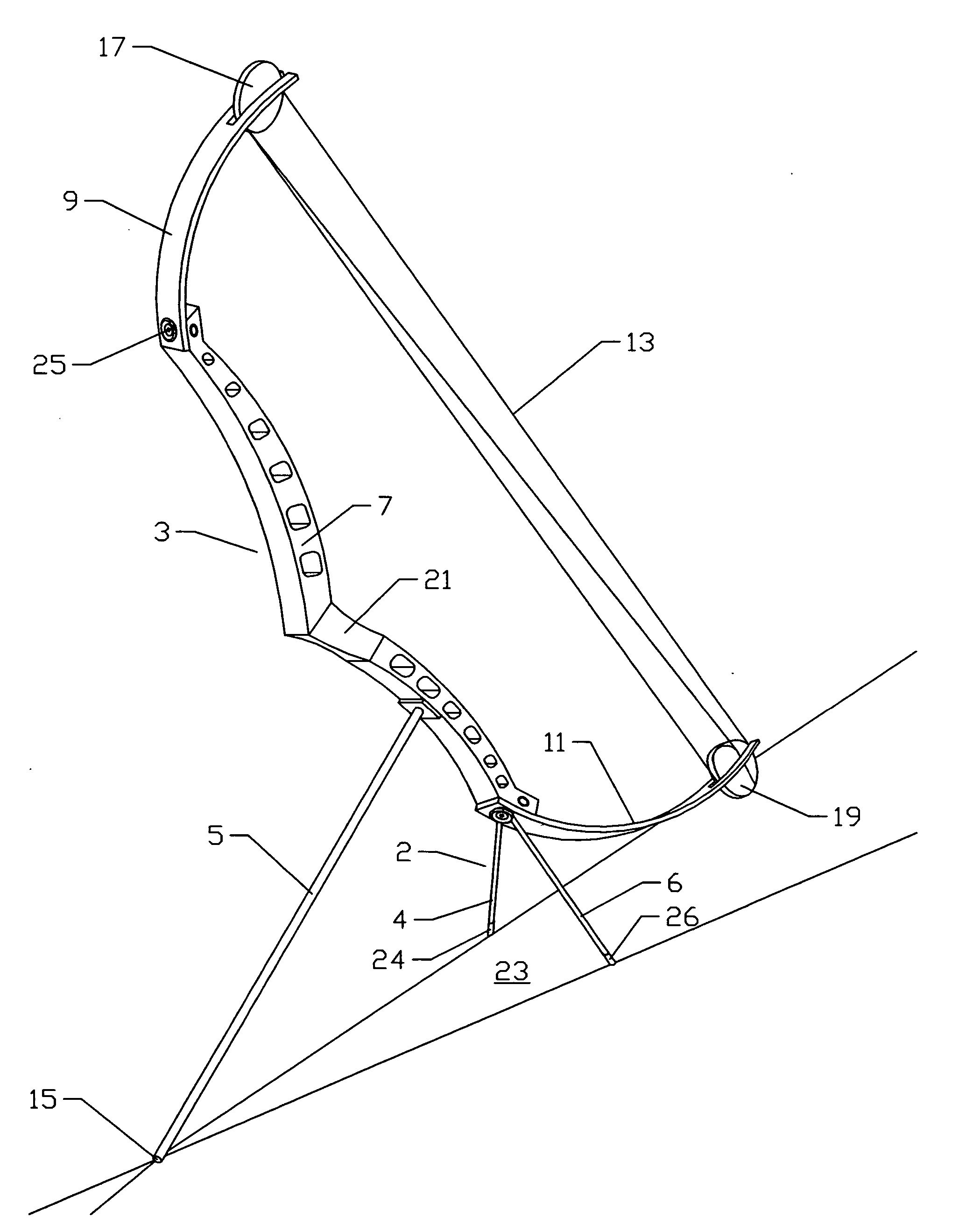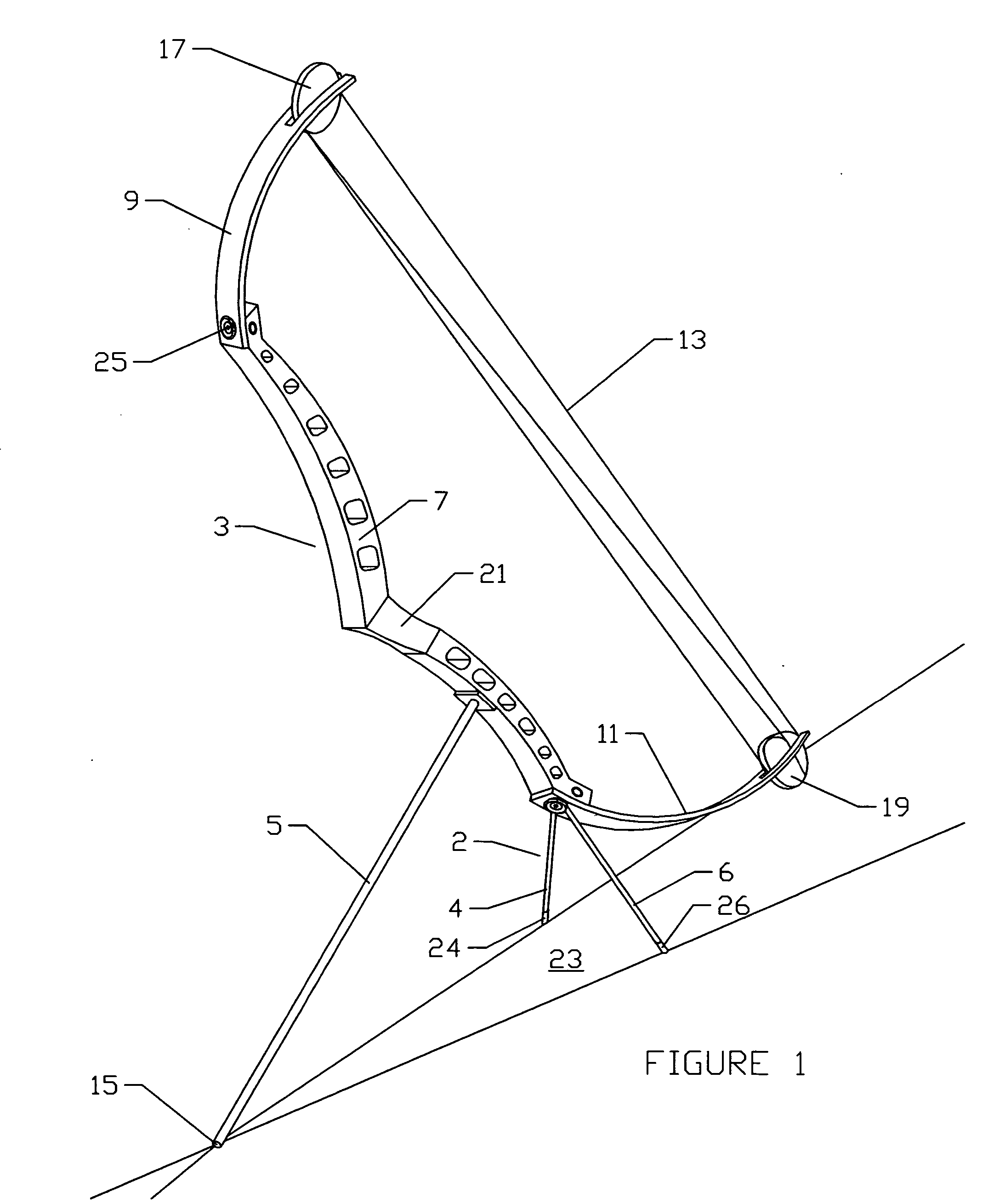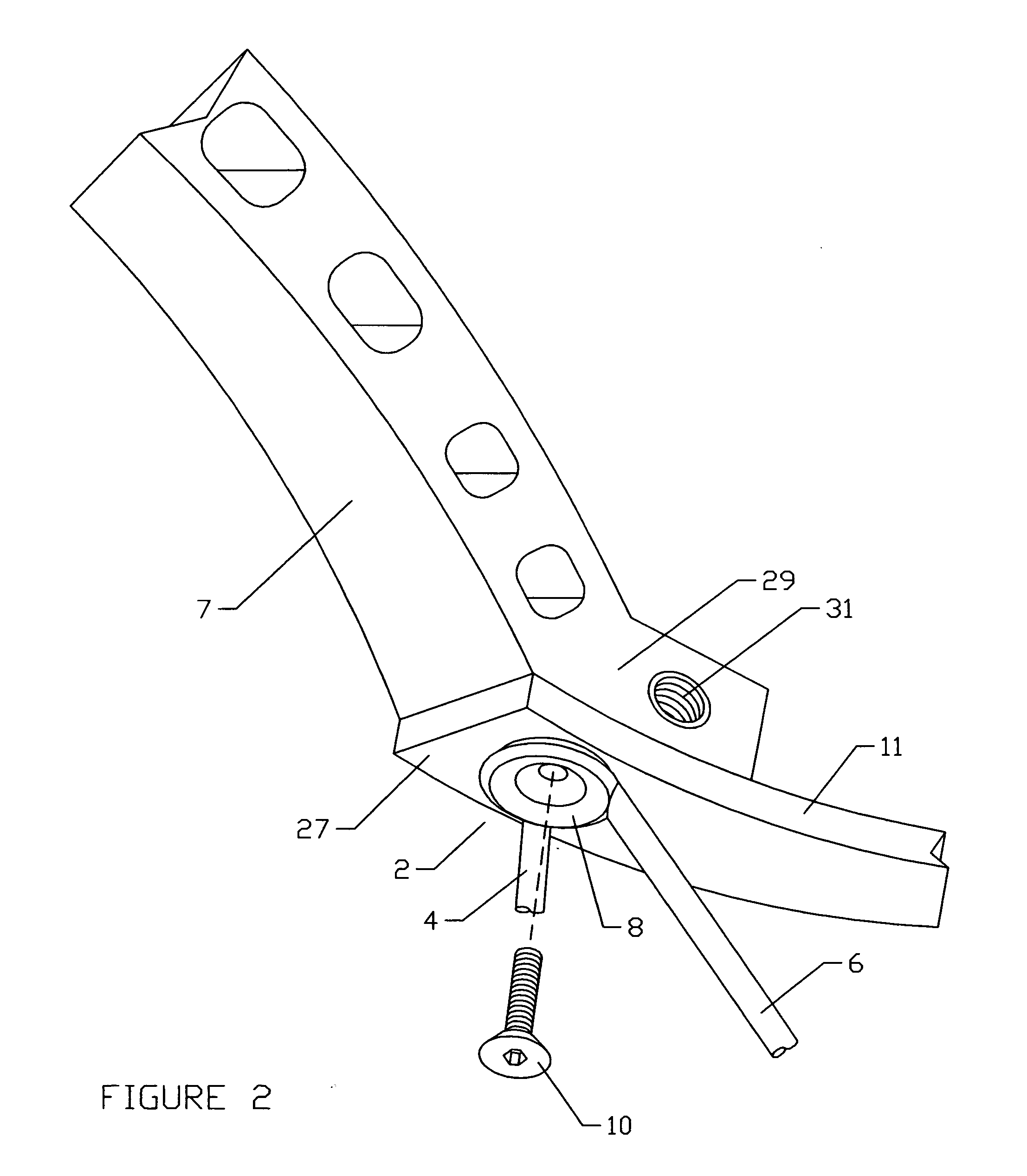Archery bow stand
a bow and archery technology, applied in the field of archery bow stands, can solve the problems of increasing the risk of misalignment of sight, bow could be accidently trampled, dirt or sand coming into contact with the string pulley components, etc., and achieves the effect of low mass, quick and easy reattachment to the base member, and small and evenly distributed mass
- Summary
- Abstract
- Description
- Claims
- Application Information
AI Technical Summary
Benefits of technology
Problems solved by technology
Method used
Image
Examples
Embodiment Construction
[0016] Throughout this description, like elements are identified with the same reference numerals.
[0017]FIG. 1 illustrates a compound bow 3 resting on surface 23 supported on the free end 15 of a stabilizer 5 and on the invention 2 which has been mounted to bow 3. Bow 3 comprises a handle or riser 7 with an upper limb 9 and a lower limb 11 mounted thereto at its opposing ends. A conical washer 25 provides an adjustable connection for upper limb 9 to riser 7. Bow 3 includes a bowstring 13 which is strung between upper pulley 17 and lower pulley 19. Stabilizer 5 is a linear rod which is mounted to bow 3 below grip 21 and is a well known accessory for a target bow. Invention 2 comprises legs 4, 6 having free ends 24, 26 respectively which with free end 15 of stabilizer 5 define a plane. Legs 4, 6 cooperate with stabilizer 5 to form a tripod to support bow on floor surface 23 such that lower limb 11 and lower pulley 19 do not rest on floor surface 23. Critical to the effectiveness of i...
PUM
 Login to View More
Login to View More Abstract
Description
Claims
Application Information
 Login to View More
Login to View More - R&D
- Intellectual Property
- Life Sciences
- Materials
- Tech Scout
- Unparalleled Data Quality
- Higher Quality Content
- 60% Fewer Hallucinations
Browse by: Latest US Patents, China's latest patents, Technical Efficacy Thesaurus, Application Domain, Technology Topic, Popular Technical Reports.
© 2025 PatSnap. All rights reserved.Legal|Privacy policy|Modern Slavery Act Transparency Statement|Sitemap|About US| Contact US: help@patsnap.com



